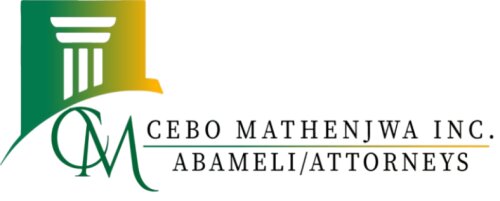Best Bad Faith Insurance Lawyers in Johannesburg
Share your needs with us, get contacted by law firms.
Free. Takes 2 min.
List of the best lawyers in Johannesburg, South Africa
About Bad Faith Insurance Law in Johannesburg, South Africa
Bad Faith Insurance refers to a situation where an insurance company fails to honor its obligations to its policyholders in a fair and honest manner. In Johannesburg, as in the rest of South Africa, the law requires insurers to adhere to good faith dealings, meaning they must thoroughly investigate claims and provide valid reasons if they are denied. Policyholders who believe their claims have been wrongly denied or inadequately processed may have grounds to file a bad faith lawsuit. This area of law is overseen by the Financial Sector Conduct Authority (FSCA) and is guided by regulations such as the Long-term Insurance Act and the Short-term Insurance Act, which aim to protect consumers from unethical practices by insurers.
Why You May Need a Lawyer
Individuals may require legal assistance with bad faith insurance in scenarios where their claims are unjustly denied, delayed, or underpaid. A lawyer specializing in this field can provide expertise in the following situations:
- Denial of valid insurance claims without a clear or fair reason.
- Inadequate investigation by the insurer into a claim.
- Unreasonable delays in claims processing.
- Living with the consequences of misleading or incomplete information provided by the insurer.
- Unjust application of policy provisions leading to the benefit acquisition.
- Experiencing intimidation or pressure tactics by an insurer to settle claims for less than their worth.
Legal professionals can effectively navigate the complexities of bad faith insurance disputes, ensuring that consumers receive the full benefits they are entitled to under their policies.
Local Laws Overview
The local laws governing bad faith insurance in Johannesburg are framed by national legislation and regulatory guidelines. The Long-term Insurance Act and the Short-term Insurance Act provide the basis for handling insurance disputes. The Financial Advisory and Intermediary Services Act regulates the conduct of financial service providers, ensuring they comply with honest and fair practices.
The Protection of Personal Information Act (POPIA) is also significant, as it mandates the ethical processing of personal information by insurers. Furthermore, the Consumer Protection Act offers a general framework to protect consumers against unfair treatment. Understanding these laws can be crucial for those seeking recourse for bad faith conduct by insurance providers in Johannesburg.
Frequently Asked Questions
What constitutes bad faith by an insurance company?
Bad faith occurs when an insurance company acts dishonestly with its policyholders by denying, delaying, or reducing claims without valid reasons.
How can I prove an insurance company acted in bad faith?
To prove bad faith, you may need to demonstrate that the insurer unreasonably refused or delayed a claim payment, or did not provide a legitimate justification for their decision.
Can I handle a bad faith insurance claim on my own?
While it's possible, having legal representation can significantly strengthen your case, as lawyers have the expertise to navigate complex legal and procedural requirements.
What should I document if I suspect bad faith?
Keep comprehensive records of all interactions with the insurer, including written communication, phone call logs, policy documents, and any other relevant information.
What are some examples of bad faith insurance practices?
Examples include denying claims without investigation, offering settlements significantly less than the claim's value, and requiring unnecessary paperwork to delay processing.
Is there a time limit to file a bad faith insurance claim?
Yes, a statute of limitations applies, so it's essential to seek legal advice promptly to understand these time constraints.
Can I claim additional damages for bad faith insurance actions?
It's possible to claim additional damages if you can prove that the insurer's actions caused you further losses or harm.
How do regulatory bodies handle bad faith insurance cases?
Reports can be made to the Ombudsman for Short-term or Long-term Insurance who investigates complaints and facilitates fair resolutions.
Could my premiums increase if I file a bad faith claim?
Filing a bad faith claim itself should not directly affect your premiums. However, the case outcome or changes in your insurance risk profile could potentially have an impact.
What role does the FSCA play in regulating insurance?
The FSCA oversees the conduct of insurance companies, ensuring they adhere to fairness and accountability standards. It investigates non-compliance and enforces regulations.
Additional Resources
For those seeking assistance or more information regarding bad faith insurance, the following resources may be helpful:
- The Ombudsman for Short-term Insurance: They handle complaints related to short-term insurance claims.
- The Ombudsman for Long-term Insurance: This office assists with disputes relevant to long-term insurance matters.
- Financial Sector Conduct Authority (FSCA): Access to regulatory information and consumer protection services.
- Legal Aid South Africa: Provides legal assistance to those unable to afford legal representation.
Next Steps
If you believe you need legal assistance for a potential bad faith insurance issue, consider the following steps:
- Gather all relevant documentation and evidence regarding your policy and the disputed claim.
- Consult with a legal professional specializing in insurance law to evaluate your case.
- Consider reaching out to the appropriate ombudsman to file a formal complaint.
- Remain proactive and responsive during any ongoing investigations or legal proceedings.
By taking these steps, you can better ensure your rights are protected and increase the likelihood of a favorable outcome.
Lawzana helps you find the best lawyers and law firms in Johannesburg through a curated and pre-screened list of qualified legal professionals. Our platform offers rankings and detailed profiles of attorneys and law firms, allowing you to compare based on practice areas, including Bad Faith Insurance, experience, and client feedback.
Each profile includes a description of the firm's areas of practice, client reviews, team members and partners, year of establishment, spoken languages, office locations, contact information, social media presence, and any published articles or resources. Most firms on our platform speak English and are experienced in both local and international legal matters.
Get a quote from top-rated law firms in Johannesburg, South Africa — quickly, securely, and without unnecessary hassle.
Disclaimer:
The information provided on this page is for general informational purposes only and does not constitute legal advice. While we strive to ensure the accuracy and relevance of the content, legal information may change over time, and interpretations of the law can vary. You should always consult with a qualified legal professional for advice specific to your situation.
We disclaim all liability for actions taken or not taken based on the content of this page. If you believe any information is incorrect or outdated, please contact us, and we will review and update it where appropriate.













